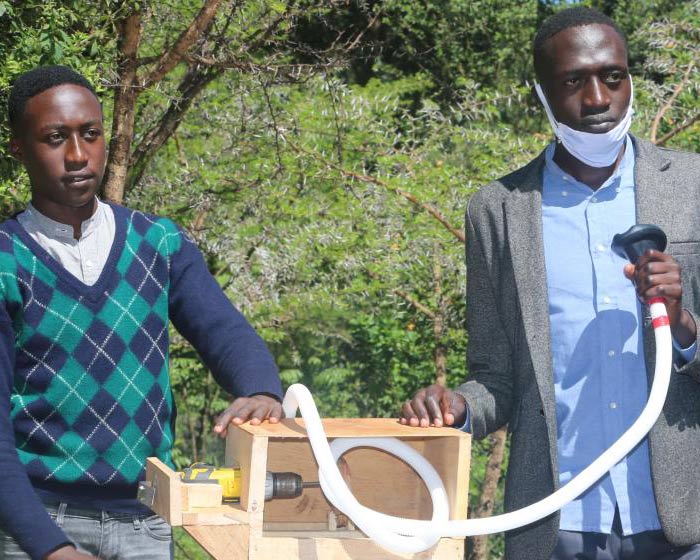×
The Standard e-Paper
Kenya’s Boldest Voice

Felix Sabulei 20 and his brother Eric Kipchirchir display their homemade ventilator at Mosoriot area in Nandi County. [Peter Ochieng, Standard]
It all started with the sad revelations that Kenyan hospitals lack adequate ventilators to manage Covid-19 patients.